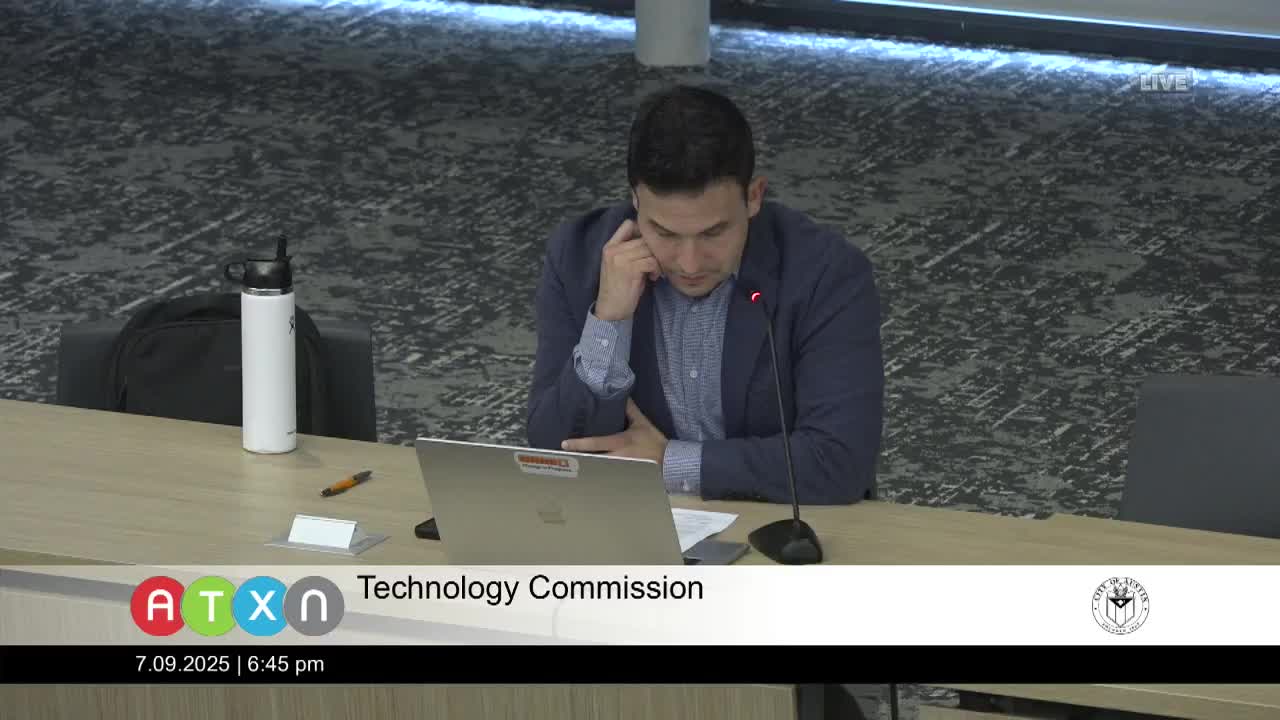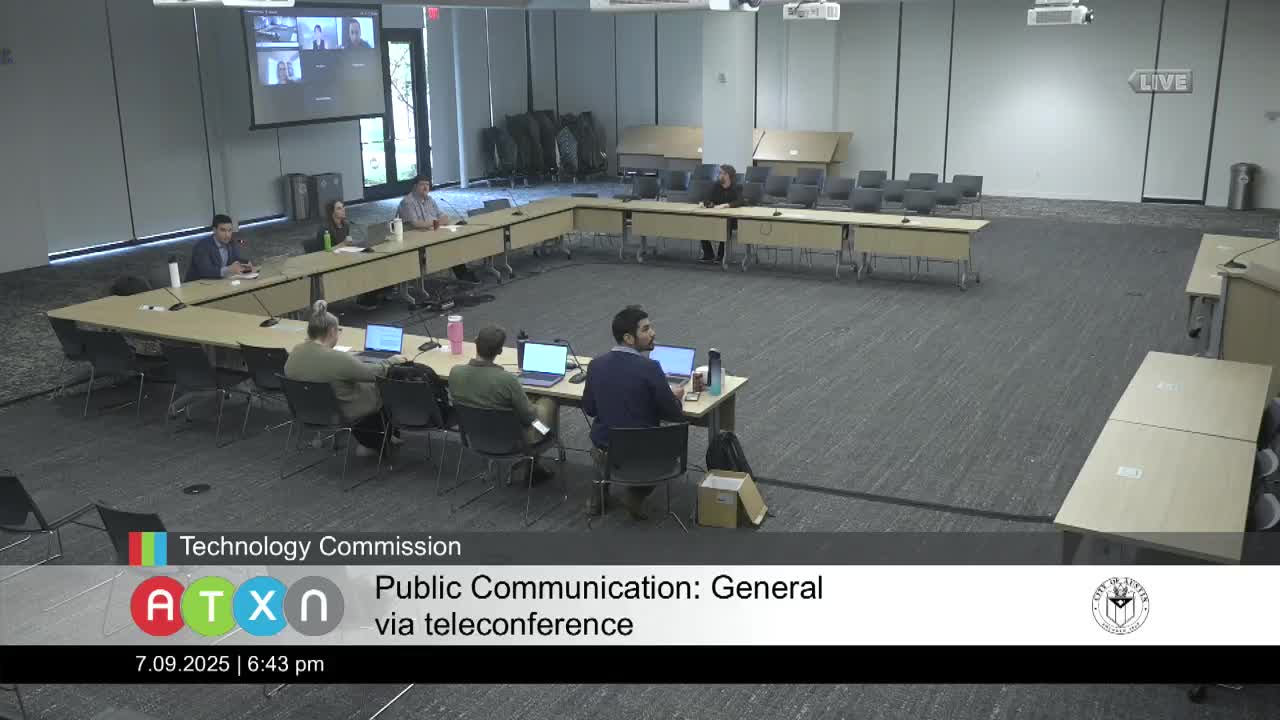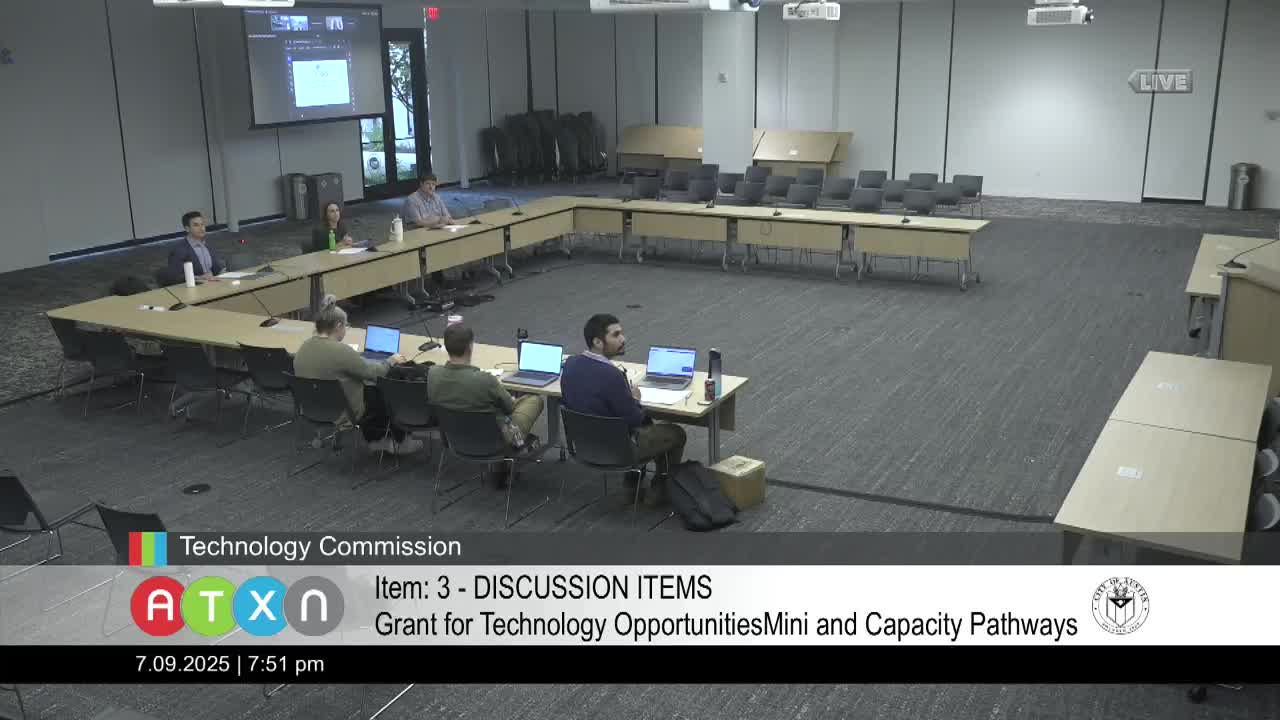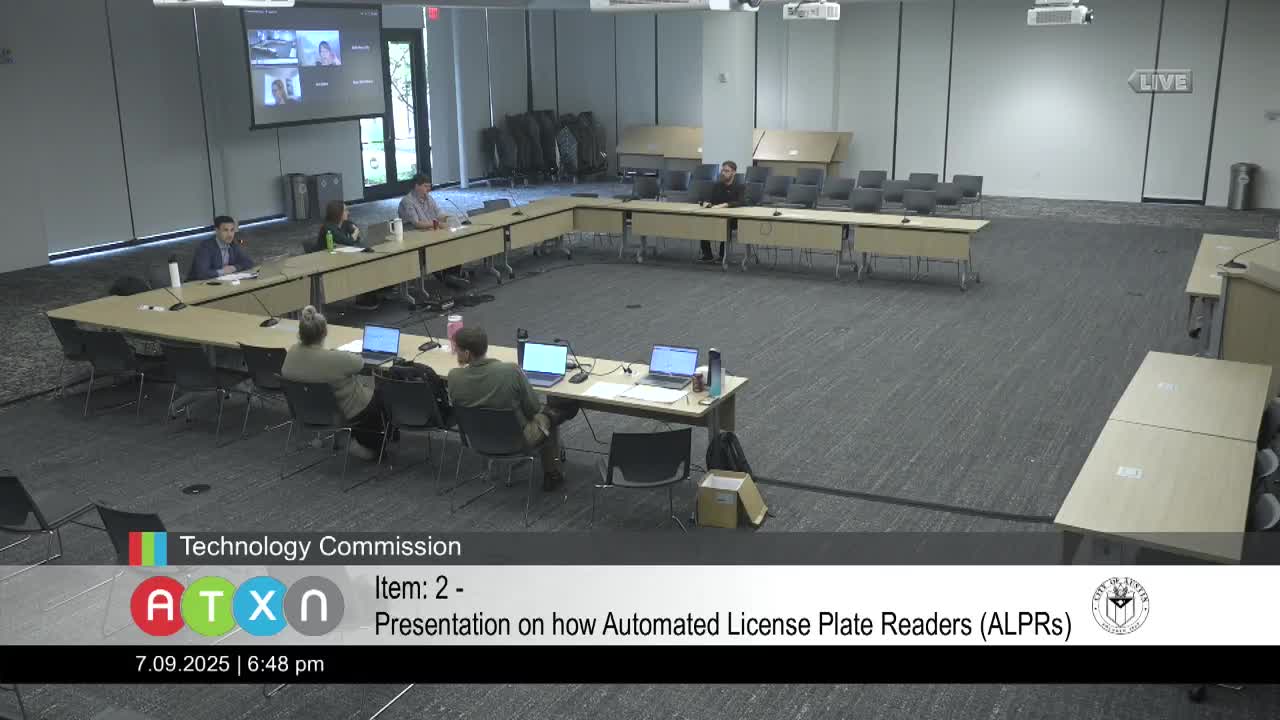Article not found
This article is no longer available. But don't worry—we've gathered other articles that discuss the same topic.

Technology Commission unanimously approves June 11 minutes

Resident urges Technology Commission to investigate behavioral manipulation in video‑game matchmaking

City liaison announces GTOPS Mini and Capacity awardees, invites commissioners to proclamation event

